
Dammam: The Jewel of Saudi Arabia's Eastern Province
Dammam, the capital of Saudi Arabia's Eastern Province, is a city where modernity meets tradition. Known for its stunning coastal views along the Arabian Gulf, Dammam offers a unique blend of natural beauty, cultural heritage, and modern attractions. The Corniche, a lush coastal promenade, is perfect for leisurely walks, picnics, and enjoying the breathtaking sunsets over the Gulf. The city is also a hub for arts and culture, with several museums and galleries showcasing the rich history and traditions of the region. The Heritage Village is a must-visit, where you can explore traditional Saudi architecture, artifacts, and local crafts. For a taste of local flavors, the vibrant food markets and street vendors offer a variety of delicious dishes, from fresh seafood to traditional Saudi cuisine. Dammam's modern side is equally impressive. The city boasts numerous shopping malls, luxury hotels, and fine dining restaurants. Adventure seekers can indulge in water sports, fishing trips, and desert safaris. The King Fahd Park, one of the largest in the Kingdom, provides ample green space for families and tourists to relax and enjoy recreational activities. Whether you're interested in history, culture, or modern amenities, Dammam has something to offer every traveler. Its friendly locals and welcoming atmosphere make it a great destination for tourists looking to experience the best of Saudi Arabia.
Local tips in Dammam
- Visit the Corniche during sunset for stunning views and a relaxing atmosphere.
- Explore the Heritage Village to learn about Saudi Arabia's rich cultural history.
- Try the local seafood at the food markets for an authentic taste of Dammam.
- Stay hydrated and wear sunscreen, especially if you're visiting during the summer months.
- Use local taxis or ride-hailing apps for convenient transportation around the city.
Dammam: The Jewel of Saudi Arabia's Eastern Province
Dammam, the capital of Saudi Arabia's Eastern Province, is a city where modernity meets tradition. Known for its stunning coastal views along the Arabian Gulf, Dammam offers a unique blend of natural beauty, cultural heritage, and modern attractions. The Corniche, a lush coastal promenade, is perfect for leisurely walks, picnics, and enjoying the breathtaking sunsets over the Gulf. The city is also a hub for arts and culture, with several museums and galleries showcasing the rich history and traditions of the region. The Heritage Village is a must-visit, where you can explore traditional Saudi architecture, artifacts, and local crafts. For a taste of local flavors, the vibrant food markets and street vendors offer a variety of delicious dishes, from fresh seafood to traditional Saudi cuisine. Dammam's modern side is equally impressive. The city boasts numerous shopping malls, luxury hotels, and fine dining restaurants. Adventure seekers can indulge in water sports, fishing trips, and desert safaris. The King Fahd Park, one of the largest in the Kingdom, provides ample green space for families and tourists to relax and enjoy recreational activities. Whether you're interested in history, culture, or modern amenities, Dammam has something to offer every traveler. Its friendly locals and welcoming atmosphere make it a great destination for tourists looking to experience the best of Saudi Arabia.
When is the best time to go to Dammam?
Iconic landmarks you can’t miss
Al Othaim Mall
Discover Al Othaim Mall in Dammam, where shopping meets entertainment in a stunning ship-inspired design, perfect for families and tourists alike.
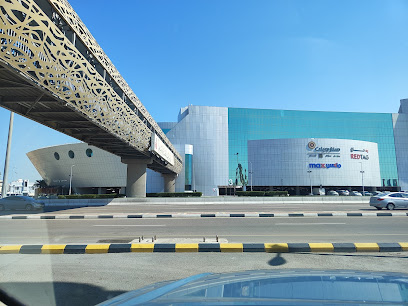
Dammam Corniche
Explore the stunning Dammam Corniche: a picturesque coastal park with breathtaking views, recreational activities, and a vibrant local atmosphere.
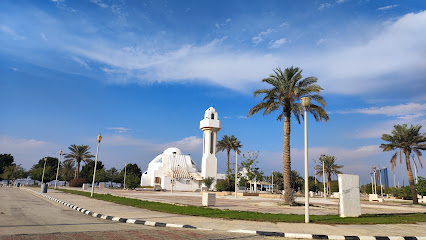
Heritage Village
Explore the rich heritage of Saudi Arabia at Heritage Village, a vibrant cultural hub in Dammam offering traditional markets, events, and authentic dining experiences.
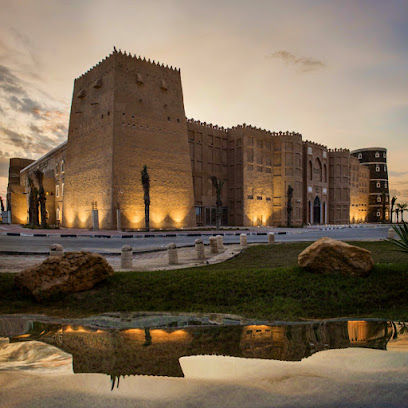
Dolphin Village Dammam
Experience the thrill of adventure and family fun at Dolphin Village Dammam, a premier theme park perfect for all ages and occasions.
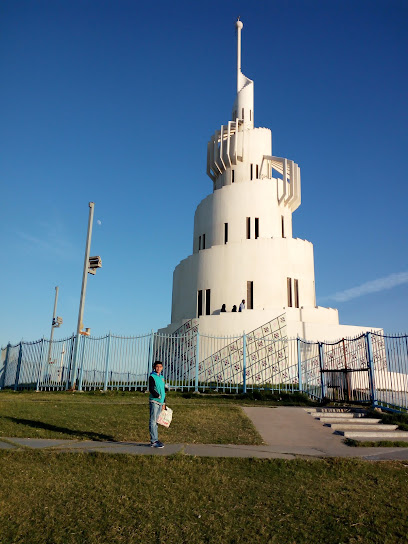
Modon Lake Park
Experience the tranquility and natural beauty of Modon Lake Park in Dammam, a perfect escape for relaxation and family fun.
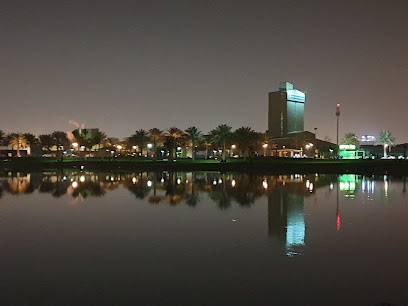
Life Park (King Fahd Park)
Explore Life Park in Dammam: A lush green haven filled with family-friendly attractions and beautiful landscapes for a perfect day out.
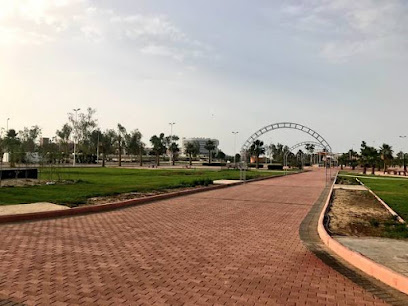
Safforiland
Explore the thrilling rides and family-friendly fun at Safforiland, Dammam's premier amusement park destination for excitement and adventure.
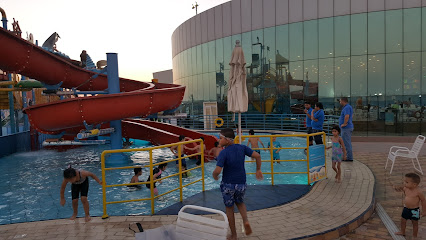
Adventure World
Explore Adventure World in Dammam, a thrilling amusement park featuring rides, games, and attractions for all ages, promising unforgettable family fun.
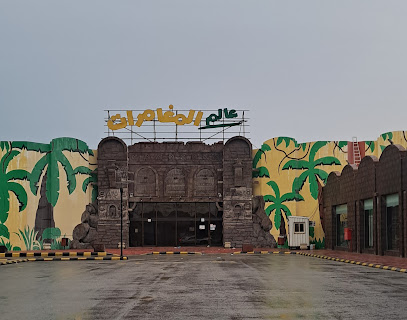
Muraikabat Mountain Park
Explore Muraikabat Mountain Park in Dammam for breathtaking views, lush landscapes, and outdoor adventures in a serene natural setting.
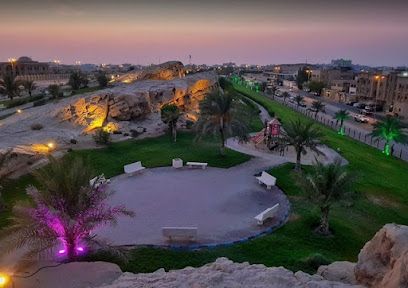
King Fahad Park
Experience the lush landscapes and serene lakes of King Fahad Park, a perfect retreat for relaxation and family fun in Dammam.
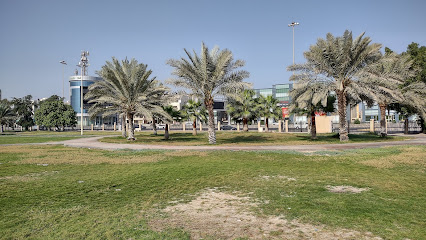
Ghurnata Park
Explore the serene beauty of Ghurnata Park in Dammam, a perfect getaway for families and nature enthusiasts alike, with lush gardens and recreational facilities.
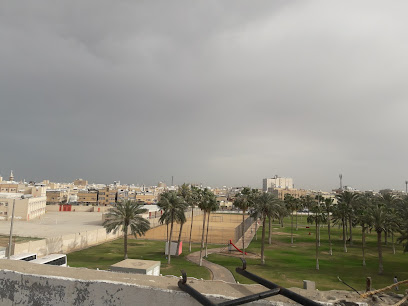
Amr Ibn Aljamooh Mosque.
Discover the architectural beauty and spiritual significance of Amr Ibn Aljamooh Mosque in Dammam, a must-visit tourist attraction.
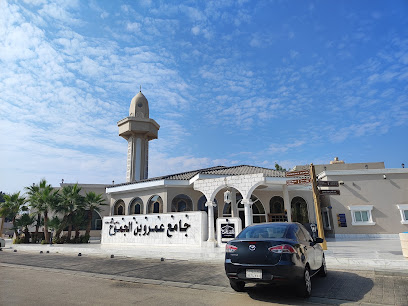
Abdullah Fuad Park
Discover the tranquility and beauty of Abdullah Fuad Park, a green oasis in Dammam perfect for relaxation and outdoor fun.
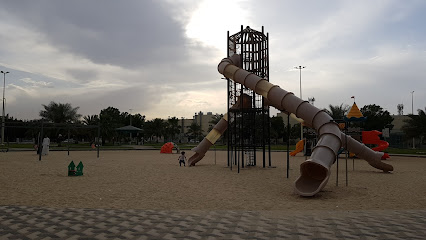
Khuzama Park
Experience the beauty of nature at Khuzama Park in Dammam, a serene escape for relaxation and family-friendly fun.
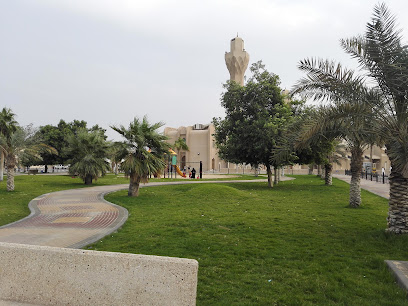
Dammam Landmark
Discover the enchanting Dammam Landmark, a historical site offering scenic views, lush gardens, and a glimpse into the rich culture of Dammam.
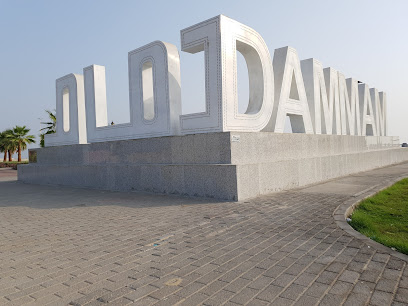
Unmissable attractions to see
Dammam Corniche
Explore the stunning Dammam Corniche, a vibrant waterfront retreat perfect for relaxation, recreation, and unforgettable family memories.
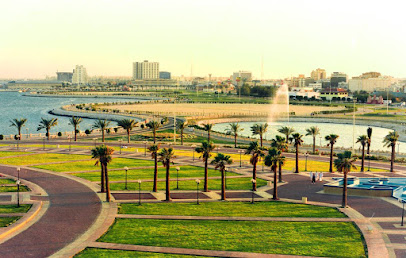
Khobar Sea Front
Discover the Khobar Sea Front, a stunning coastal attraction in Al Khobar, blending natural beauty, recreation, and vibrant culture along the Arabian Gulf.
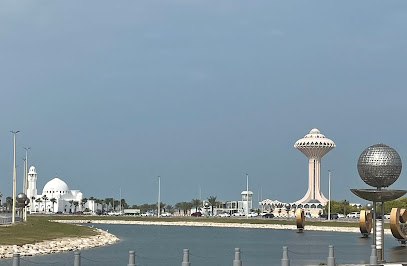
King Abdullah Park
Explore King Abdullah Park in Dammam: a tranquil oasis with lush landscapes, recreational activities, and cultural events that capture the essence of Saudi Arabia.
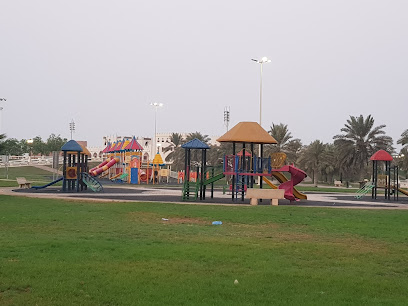
Duck Lake
Experience tranquility at Duck Lake, a picturesque fishing lake in Al Khobar, perfect for nature lovers and families seeking a peaceful retreat.
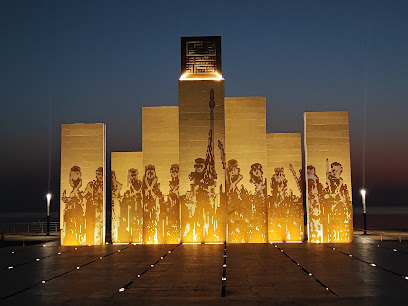
King Abdulaziz Center for World Culture - Ithra
Explore the King Abdulaziz Center for World Culture - Ithra, a cultural gem in Dhahran, showcasing art, heritage, and creativity in stunning surroundings.
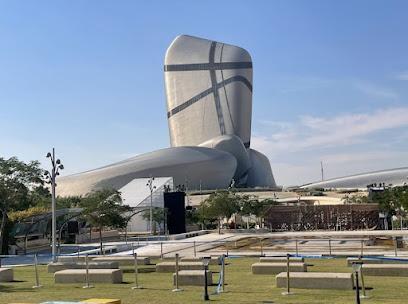
Modon Lake Park
Experience the natural beauty and recreational charm of Modon Lake Park in Dammam, a perfect getaway for families and nature lovers.
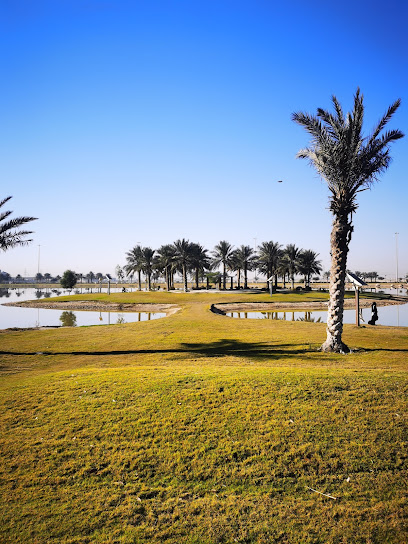
Adventure World
Discover Adventure World in Dammam, a thrilling amusement park featuring exciting rides, games, and unforgettable family fun.
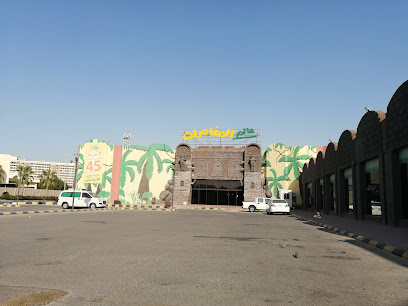
Muraikabat Mountain Park
Discover the serene landscapes and recreational charm of Muraikabat Mountain Park in Dammam, a perfect retreat for nature lovers and adventurers alike.
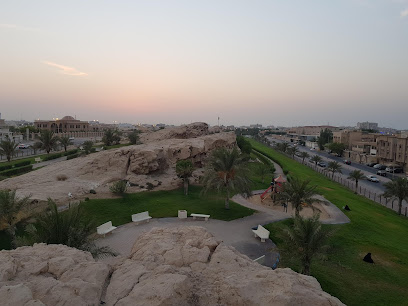
Salsabeel Park
Discover Salsabeel Park in Dammam: A lush green oasis perfect for relaxation, family fun, and outdoor activities amidst the city’s vibrant landscape.
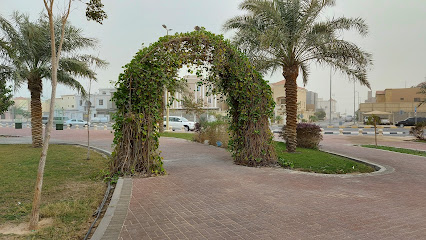
Taybeen Museum
Discover the enchanting Taybeen Museum in Al Khobar, a perfect blend of art, gardens, and cafes that offers a serene escape for all visitors.
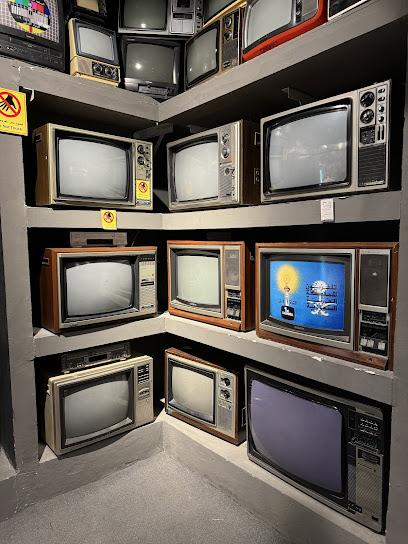
King Fahad Park
Discover the beauty of King Fahad Park in Dammam, a tranquil green oasis perfect for relaxation, recreation, and family fun amidst nature.
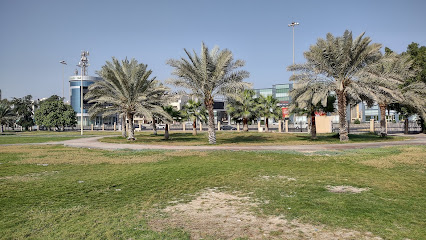
Taybeen Museum
Explore the captivating Taybeen Museum in Al Khobar, where art, history, and nature come together for an unforgettable experience.
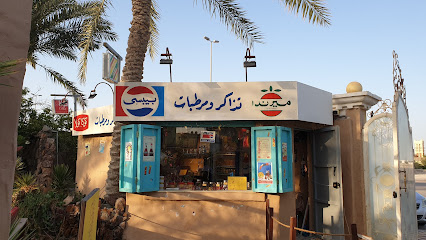
Ghurnata Park
Explore Ghurnata Park in Dammam for a perfect blend of nature, recreation, and local culture in a stunning urban oasis.
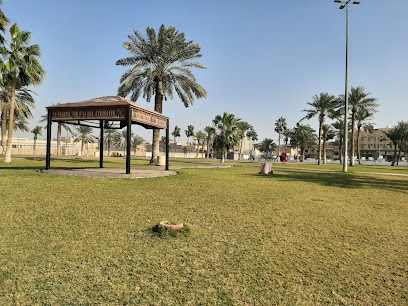
Abdullah Fuad Park
Experience the serene beauty of Abdullah Fuad Park in Dammam, a perfect spot for relaxation, family fun, and nature exploration.
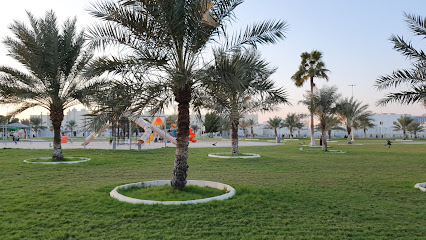
Half Moon Beach
Experience the beauty and tranquility of Half Moon Beach in Dhahran, Saudi Arabia, where golden sands meet the stunning Arabian Gulf.
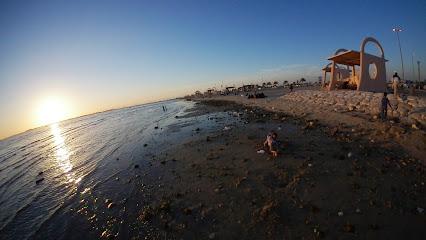
Essential places to dine
Heritage Village
Explore Saudi culture at Heritage Village in Dammam – where tradition meets taste in a stunning waterfront setting.
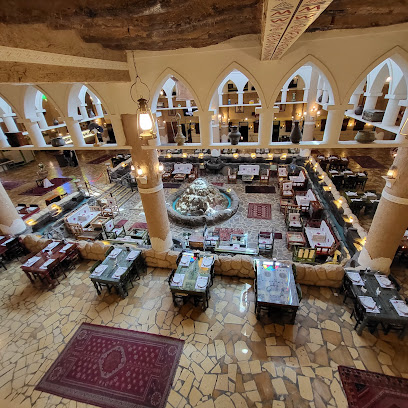
Osmanli Lezzet المذاق العثماني
Experience authentic Turkish cuisine at Osmanli Lezzet in Dammam—where every meal is a journey through Ottoman flavors.
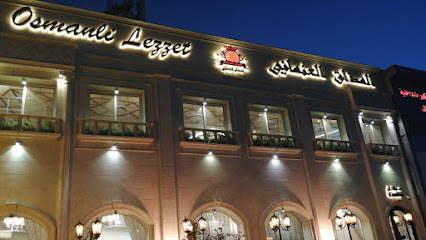
Roma Castle Restaurant
Discover exquisite Middle Eastern cuisine at Roma Castle Restaurant in Dammam, where tradition meets modern dining excellence.
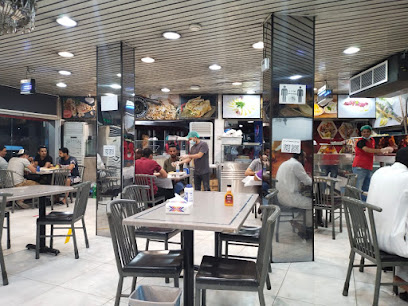
Beit Misk Restaurant
Experience authentic Lebanese dining at Beit Misk Restaurant in Dammam - where tradition meets flavor in every bite.
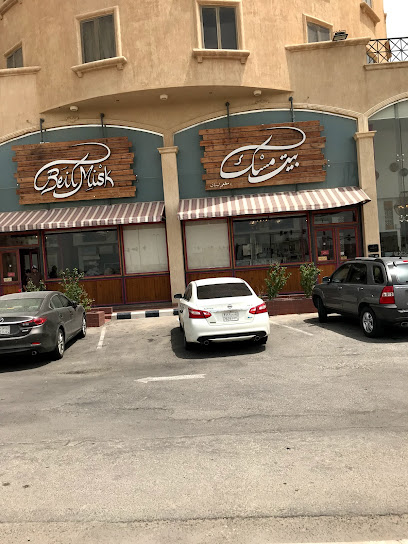
Shrimp House Restaurant
Experience exquisite seafood dining at Shrimp House Restaurant in Dammam – where fresh flavors meet stunning views.
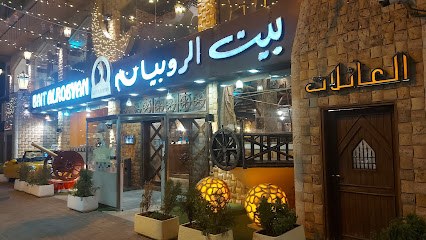
Come to Momma
Discover culinary excellence at Come to Momma in Dammam - where every dish tells a story.
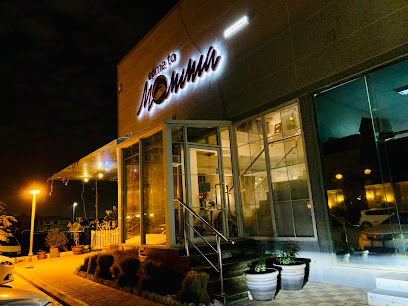
زاد السلطان
Discover authentic Middle Eastern cuisine at Zad Al Sultan in Dammam - where every meal is a celebration of flavor and tradition.
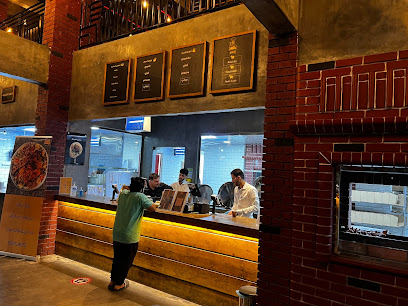
Steak House
Indulge in the finest steaks at Steak House in Dammam – where every bite is a celebration of flavor and quality.
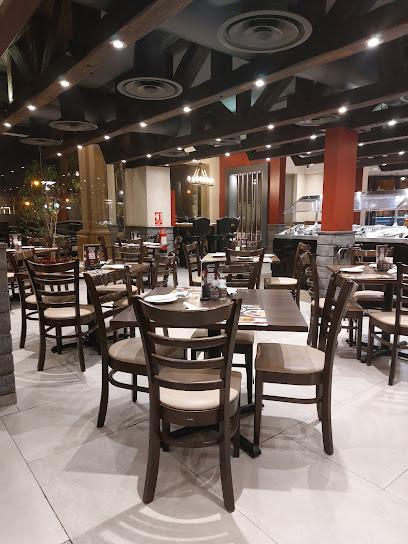
Blameda Restaurant مطعم بلاميدا
Experience exquisite dining at Blameda Restaurant in Dammam – where tradition meets modern cuisine in a stunning atmosphere.
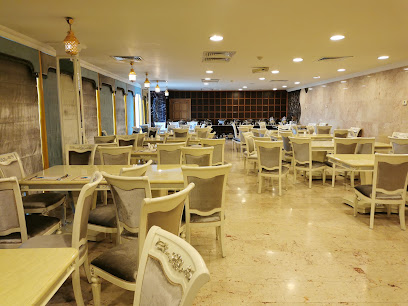
Balcony بالكوني
Experience culinary excellence at Balcony in Dammam's Al Shati Mall—where delicious food meets breathtaking views.
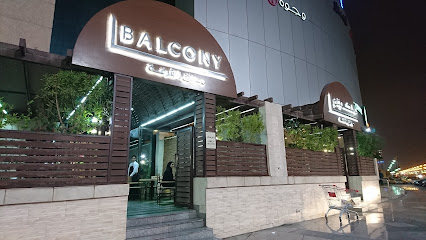
مطعم ماكس Macs Eatery
Experience the best Tex-Mex flavors at Macs Eatery in Dammam – where every meal is a fiesta!
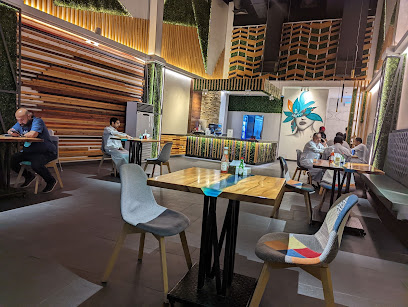
Holidays Restaurant
Experience the rich flavors of India at Holidays Restaurant in Dammam – where every meal is a celebration.
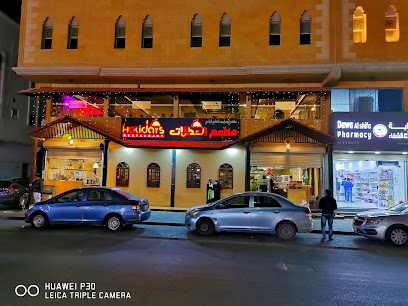
umbrella
Discover Umbrella in Dammam: A delightful fusion of local flavors and international cuisine in a cozy ambiance.
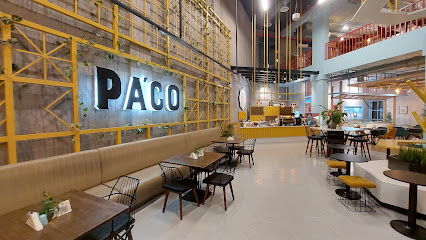
Beach Park Restaurant & Lounge
Experience exquisite dining at Beach Park Restaurant & Lounge in Dammam, where delightful flavors meet stunning seaside views.
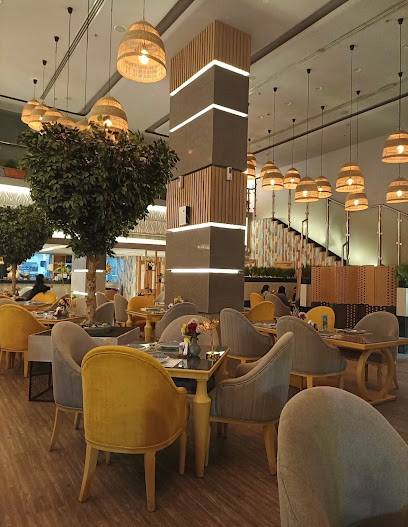
Pastel Cafe - Dammam
Discover exquisite dining at Pastel Cafe in Dammam – where quality meets ambiance in every dish.
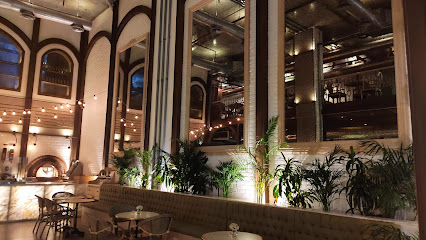
Markets, malls and hidden boutiques
Al Othaim Mall
Discover endless shopping and dining experiences at Al Othaim Mall in Dammam, a vibrant hub for tourists and locals alike.
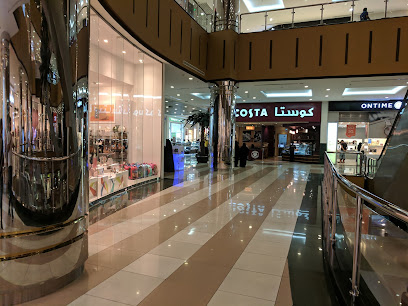
Cenomi Al Nakheel Dammam Mall
Discover the ultimate shopping experience at Cenomi Al Nakheel Dammam Mall, where fashion, dining, and entertainment come together.
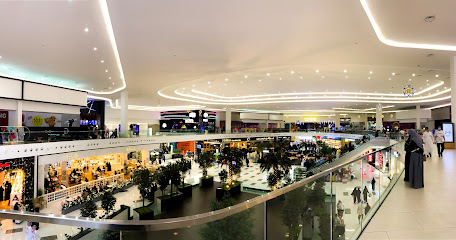
Dareen Mall
Discover the vibrant shopping experience at Dareen Mall in Dammam, where retail meets leisure in a family-friendly environment.
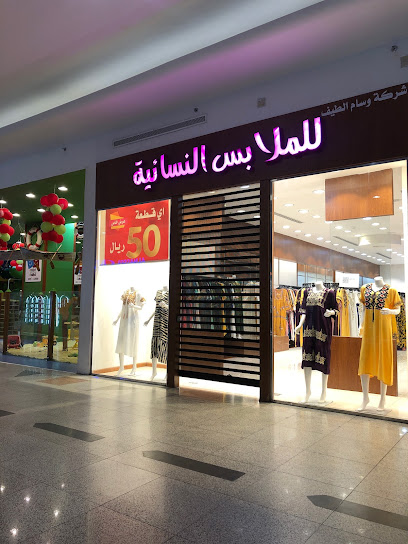
Hayat plaza
Explore Hayat Plaza: Dammam's ultimate shopping mall, blending modern retail, local culture, and delicious dining options.
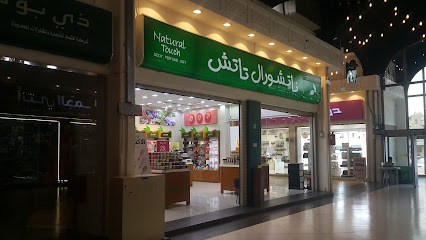
West Avenue Mall
Explore West Avenue Mall, a shopping paradise in Dammam, featuring trendy stores, delicious dining, and endless entertainment options.
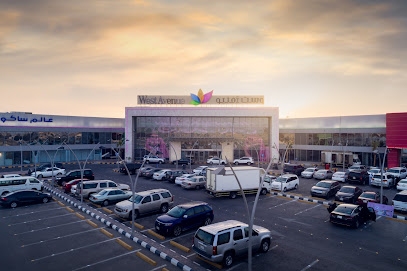
Top Ten
Explore the latest fashion trends at Top Ten, Dammam's premier clothing store offering stylish apparel for the whole family.
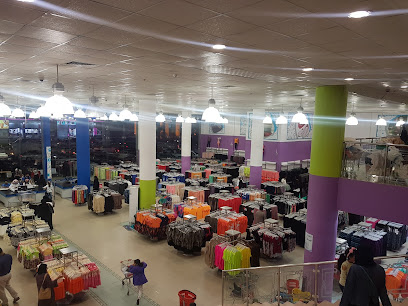
Dammam Traditional Market
Immerse yourself in the vibrant atmosphere of Dammam Traditional Market, where culture meets commerce in a delightful shopping experience.
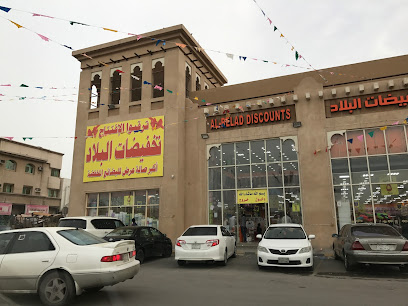
Amazon 5 Riyal Shop
Explore the Amazon 5 Riyal Shop in Dammam for unbeatable deals on a variety of unique products and souvenirs.
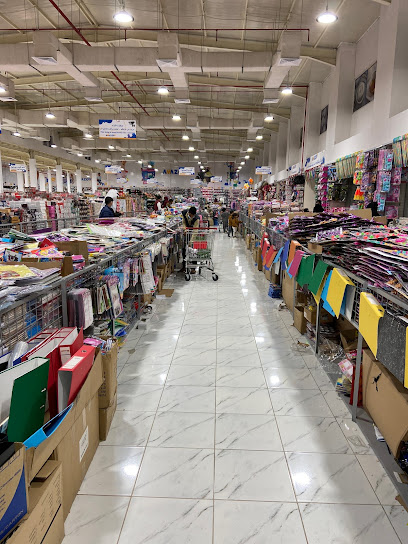
City Flower Department Store
Explore the City Flower Department Store in Dammam, your one-stop shopping destination for clothing, accessories, and local treasures.
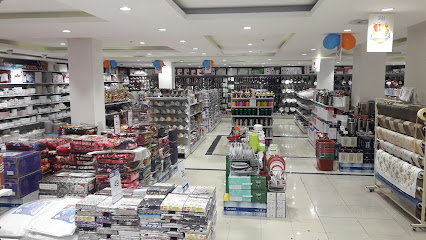
Top Center
Top Center in Dammam offers a delightful shopping experience with diverse stores, a hypermarket, and a vibrant atmosphere for all visitors.
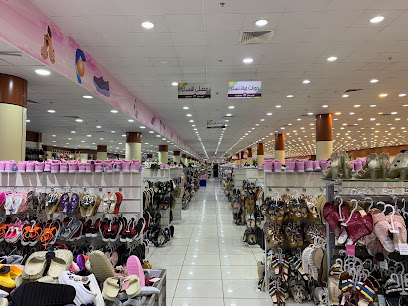
Nice Store
Discover unique home goods and gifts at Nice Store in Dammam, the ultimate shopping destination for style and quality.
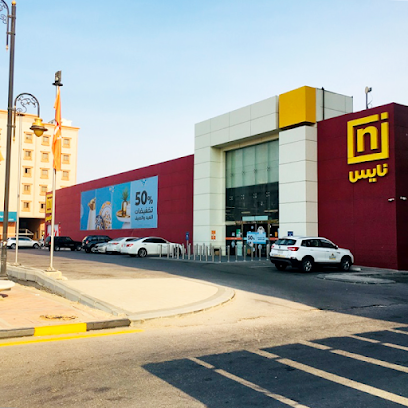
Home Centre
Explore Home Centre in Dammam for a diverse range of stylish furniture and home accessories, perfect for every taste and budget.
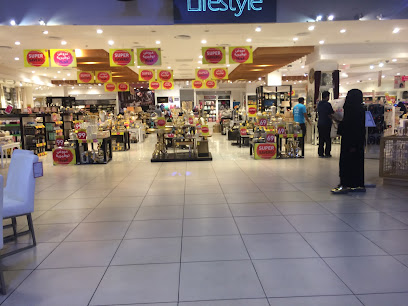
AlLoloah Mall
Explore AlLoloah Mall: A Shopping Haven in Dammam with Diverse Retail, Dining, and Family Entertainment Options.
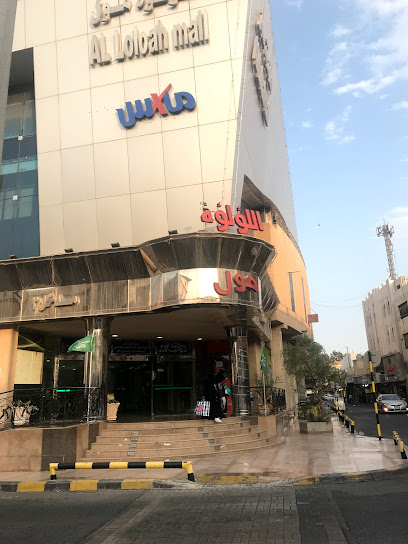
Malabar Gold and Diamonds - Gold Souq, Ladies Market - Dammam
Explore the exquisite collection of gold and diamond jewelry at Malabar Gold and Diamonds, a premier shopping destination in Dammam's Ladies Market.
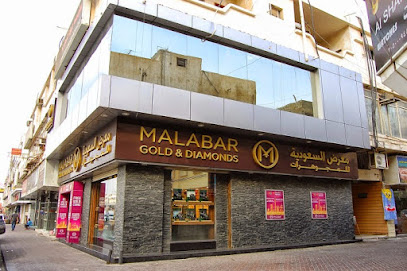
الدمام للتسويق Dammam Shopping Centre
Explore a diverse shopping experience at Dammam Shopping Centre – your gateway to local culture and unique finds.
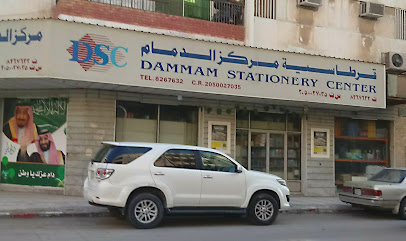
Essential bars & hidden hideouts
Roma Castle Restaurant
Discover a delightful culinary experience at Roma Castle Restaurant in Dammam, where authentic flavors meet warm hospitality.
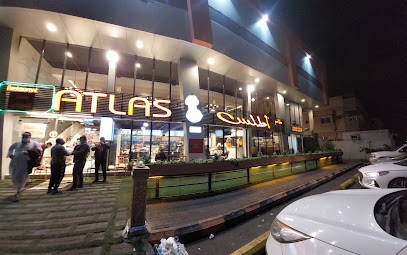
Come to Momma
Experience the vibrant culinary scene at Come to Momma, where exceptional flavors and inviting ambiance await in Dammam.
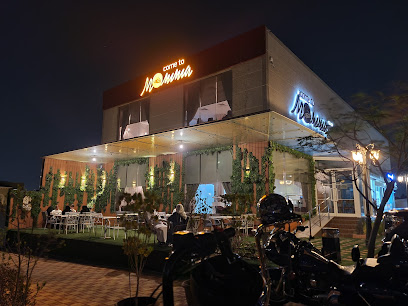
Melrose Lounge
Experience the elegance of Melrose Lounge in Al Khobar, where exquisite cuisine meets a vibrant atmosphere for an unforgettable dining adventure.
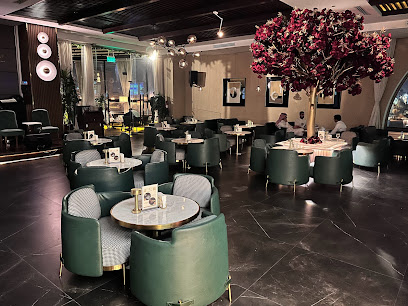
ديوانية زعفران
Experience the rich flavors of Arabian coffee culture at Duwaniya Zaferan, a cozy café in Dammam that invites relaxation and connection.
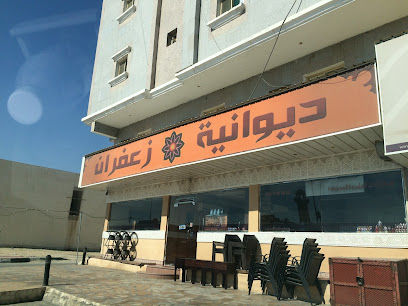
Lapate Lounge لابات لونج
Lapate Lounge: A sophisticated oasis in Dammam offering exquisite cuisine and a vibrant atmosphere for relaxation and socializing.
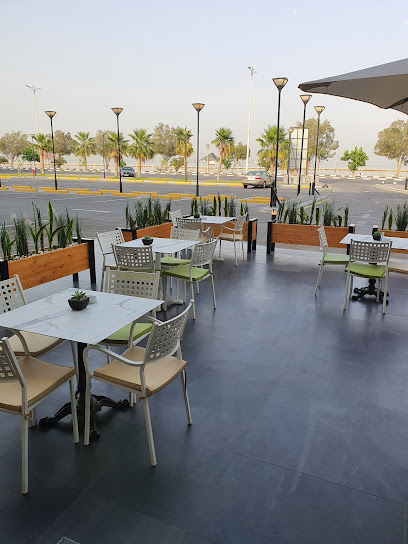
Habits | هابيتس
Discover the perfect blend of comfort and style at Habits Lounge in Dammam, a delightful retreat for coffee lovers and relaxation seekers.
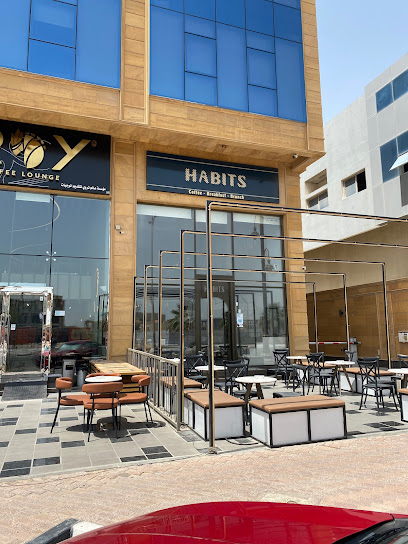
Brighton Cafe
Experience the vibrant nightlife of Dammam at Brighton Cafe, where delightful drinks and a lively atmosphere await.
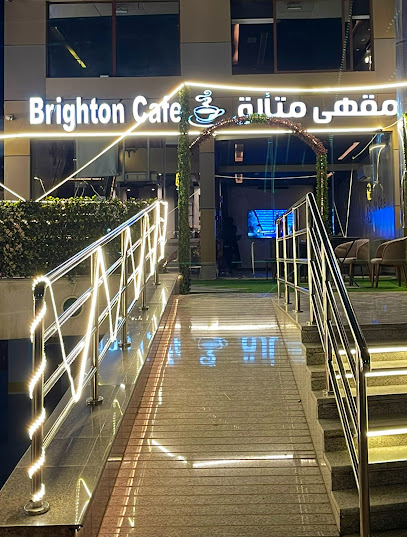
Da Vinci Italian Restaurant
Indulge in authentic Italian flavors at Da Vinci Italian Restaurant in Dammam, where culinary excellence meets inviting ambiance.
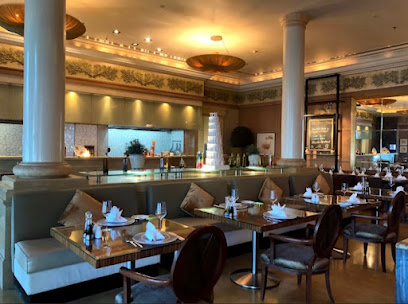
Juices Country 2 جوس كانتري العزيزية
Experience the vibrant flavors of Juices Country in Dammam, where refreshing juices and cocktails await in a lively atmosphere.
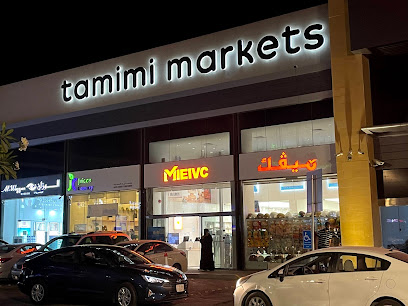
The Peak Dammam | ذا بيك الدمام
Experience the vibrant flavors of gourmet hamburgers at The Peak Dammam, where quality meets a welcoming atmosphere in the heart of the city.

فيب مراكش للمعسلات
Discover traditional Middle Eastern leisure at فيب مراكش للمعسلات, your go-to hookah store in Dammam, offering a rich variety of flavors and a cultural experience.
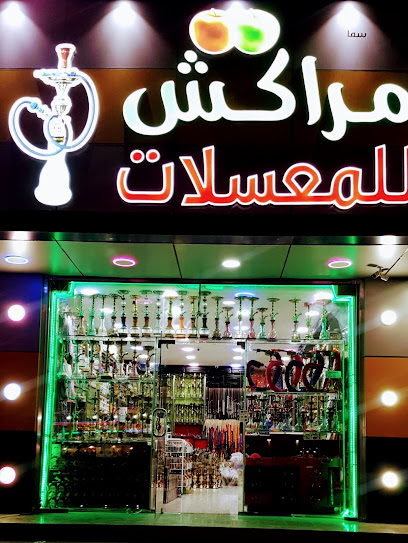
فينسيا لاونج ومقهى Vensia Lounge & Cafe
Discover relaxation and gourmet delights at Vensia Lounge & Cafe in Dammam, where every moment is a taste of elegance.
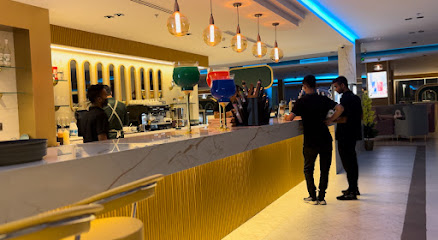
لي ڤيلا كافيه/لاونج
Discover the ultimate relaxation spot in Dammam at لي ڤيلا كافيه/لاونج, where delicious flavors and good vibes await you.
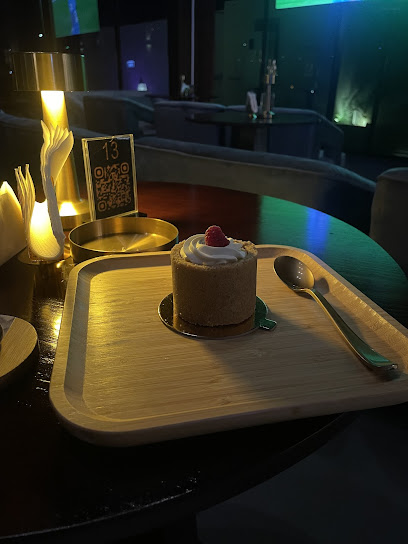
Pachu's Cafe
Discover the flavors of Dammam at Pachu's Cafe, where comfort meets culinary excellence in a vibrant atmosphere.

Local Phrases
-
- Helloمرحبا
[marhaban] - Goodbyeوداعا
[wadaeana] - Yesنعم
[naam] - Noلا
[laa] - Please/You're welcomeمن فضلك/على الرحب والسعة
[min fadlik/ala alrahb wasaeatan] - Thank youشكرا
[shukran] - Excuse me/Sorryعذرا
[aadhran] - How are you?كيف حالك؟
[kaifa haluk?] - Fine. And you?بخير. وأنت؟
[bikhair. waant?] - Do you speak English?هل تتحدث الإنجليزية؟
[hal tatahadath al'inglizia?] - I don't understandأنا لا أفهم
[ana la afham]
- Helloمرحبا
-
- I'd like to see the menu, pleaseأود أن أرى القائمة، من فضلك
[awad 'an 'ara alqaimah, min fadlik] - I don't eat meatأنا لا آكل اللحم
[ana la akl allahm] - Cheers!في صحتك!
[fi sahtik!] - I would like to pay, pleaseأريد أن أدفع، من فضلك
[urid 'an 'adfa', min fadlik]
- I'd like to see the menu, pleaseأود أن أرى القائمة، من فضلك
-
- Help!النجدة!
[alnajdah!] - Go away!انقلع!
[anqalae!] - Call the Police!اتصل بالشرطة!
[atassal bialshurta!] - Call a doctor!اتصل بطبيب!
[atassal bitabib!] - I'm lostلقد ضللت الطريق
[laqad dalalet altariq] - I'm illأنا مريض
[ana mareed]
- Help!النجدة!
-
- I'd like to buy...أود أن أشتري...
[awad 'an 'ashtari...] - I'm just lookingأنا فقط أتفرج
[ana faqat atfarij] - How much is it?كم سعره؟
[kam sairuh?] - That's too expensiveهذا غالي جدا
[hadha ghali jiddan] - Can you lower the price?هل يمكنك خفض السعر؟
[hal yumkinuk khafd alsair?]
- I'd like to buy...أود أن أشتري...
-
- What time is it?كم الساعة؟
[kam alsaa'ah?] - It's one o'clockالساعة الواحدة
[alsaa'ah alwahidah] - Half past (10)النصف بعد (10)
[alnusf baed (10)] - Morningالصباح
[alsaabah] - Afternoonالمساء
[almisae] - Eveningالمساء
[almisae] - Yesterdayأمس
[ams] - Todayاليوم
[alyawm] - Tomorrowغدا
[ghadan] - 1واحد
[wahid] - 2اثنان
[ithnan] - 3ثلاثة
[thalatha] - 4أربعة
[arbaa] - 5خمسة
[khamsah] - 6ستة
[sittah] - 7سبعة
[sabaa] - 8ثمانية
[thamania] - 9تسعة
[tisaa] - 10عشرة
[ashara]
- What time is it?كم الساعة؟
-
- Where's a/the...?أين ...؟
[ayn ...?] - What's the address?ما هو العنوان؟
[ma hu aluanaan?] - Can you show me (on the map)?هل يمكنك أن تريني (على الخريطة)؟
[hal yumkinuk 'an tarini (ala alkhariata)?] - When's the next (bus)?متى يأتي الحافلة التالية؟
[mata yati alhafilat altalea?] - A ticket (to ....)تذكرة (إلى ....)
[tazkirat (ila ....)]
- Where's a/the...?أين ...؟
History of Dammam
-
Dammam's origins trace back to ancient times with its prime location on the Arabian Gulf, making it a hotspot for early settlers and traders. Archaeological evidence suggests that the area was inhabited as early as the Bronze Age, with early inhabitants engaging in fishing, pearl diving, and trading with neighboring regions.
-
In the 1920s, the Al-Dawasir tribe migrated to Dammam from Bahrain. This migration marked a significant cultural and demographic shift in the area. The Al-Dawasir tribe played a crucial role in shaping the modern identity of Dammam, contributing to the region's economic and social development.
-
The discovery of oil in Dammam in 1938 was a turning point in the city's history. The Dammam No. 7 well, also known as the 'Prosperity Well,' marked the beginning of Saudi Arabia's transformation into one of the world's leading oil producers. This discovery brought rapid industrialization and economic growth to the region.
-
In 1999, King Fahd International Airport was inaugurated, becoming one of the largest airports in the world by area. This development significantly boosted Dammam's connectivity with the rest of the world, fostering international trade and tourism.
-
Dammam has seen extensive modernization over the past few decades, with the development of cultural landmarks such as the King Abdulaziz Center for World Culture (Ithra), which opened in 2017. This iconic building serves as a hub for cultural events, exhibitions, and educational programs, highlighting Dammam's commitment to preserving and promoting its rich heritage.
-
Established in 1952, the Eastern Province Chamber of Commerce and Industry has played a pivotal role in the economic development of Dammam. The organization has been instrumental in attracting investments, supporting local businesses, and fostering a business-friendly environment, further solidifying Dammam's status as a key economic hub in Saudi Arabia.
Dammam Essentials
-
Dammam is served by King Fahd International Airport (DMM), which is approximately 50 kilometers northwest of the city center. The airport is well-connected with major cities worldwide, including direct flights from Europe, Asia, and other parts of the Middle East. From the airport, you can take a taxi or use ride-hailing services to reach the city. Alternatively, there are shuttle buses that operate between the airport and various points in Dammam. For those traveling by land, Dammam is accessible via the King Fahd Causeway from Bahrain, and there are regular bus services from Riyadh and other Saudi cities.
-
Dammam has a well-developed transportation network. Taxis are readily available and can be hailed on the street or booked via apps like Uber and Careem. The city also has a reliable bus service operated by the Saudi Public Transport Company (SAPTCO), which covers major routes. For a more flexible option, car rentals are available at the airport and throughout the city. Be aware that traffic can be heavy during peak hours, so plan your travel accordingly.
-
The official currency in Saudi Arabia is the Saudi Riyal (SAR). Credit and debit cards are widely accepted in hotels, restaurants, and larger stores. However, it is advisable to carry some cash for smaller establishments and markets. ATMs are plentiful in Dammam, and currency exchange services are available at banks and exchange bureaus. Always ensure you have enough cash for emergency situations.
-
Dammam is generally a safe city for tourists. However, like any urban area, it is important to stay vigilant. Avoid walking alone in isolated areas at night and keep an eye on your belongings in crowded places. The Corniche area is popular with tourists and generally safe, but it is always best to stay aware of your surroundings. Petty crimes such as pickpocketing can occur, so take standard precautions to safeguard your valuables.
-
In case of emergency, dial 911 for immediate assistance. The local police, fire department, and medical services are efficient and well-equipped. For medical emergencies, Dammam has several hospitals, including King Fahd Specialist Hospital and Dammam Medical Complex. It is recommended to have travel insurance that covers medical emergencies. Pharmacies are widespread, and many are open 24/7, offering over-the-counter medications for minor health issues.
-
Fashion: Do dress modestly. Men should avoid wearing shorts, and women should wear abayas and cover their hair in public places. Religion: Do respect Islamic customs. During prayer times, avoid making noise near mosques. Public Transport: Do use designated seating areas. Avoid eating and drinking on public transport. Greetings: Do greet people with 'As-salamu alaykum' (Peace be upon you). Handshakes are common, but only if initiated by the other person. Eating & Drinking: Do try local cuisines and accept food graciously when offered. Don't eat, drink, or smoke in public during the holy month of Ramadan from dawn to dusk.
-
To experience Dammam like a local, visit the Al-Shatee Souq, where you can find traditional goods and interact with locals. Spend time at the Dammam Corniche, a popular spot for families and friends to gather, especially during weekends. Don’t miss trying local dishes such as Kabsa and Mandi at traditional restaurants. For a unique experience, take a boat trip from the Half Moon Bay to explore the Persian Gulf. Engaging in conversations with locals can provide you with deeper insights into the culture and lifestyle of Dammam.
Nearby Cities to Dammam
-
Things To Do in Al Khobar
-
Things To Do in Budaiya
-
Things To Do in Saar
-
Things To Do in Hamad Town
-
Things To Do in Manama
-
Things To Do in Isa Town
-
Things To Do in Muharraq
-
Things To Do in Riffa
-
Things To Do in Juffair
-
Things To Do in Amwaj Islands
-
Things To Do in Sitra
-
Things To Do in Al Jubail
-
Things To Do in Al Shamal
-
Things To Do in Al Khor
-
Things To Do in Al Sheehaniya








